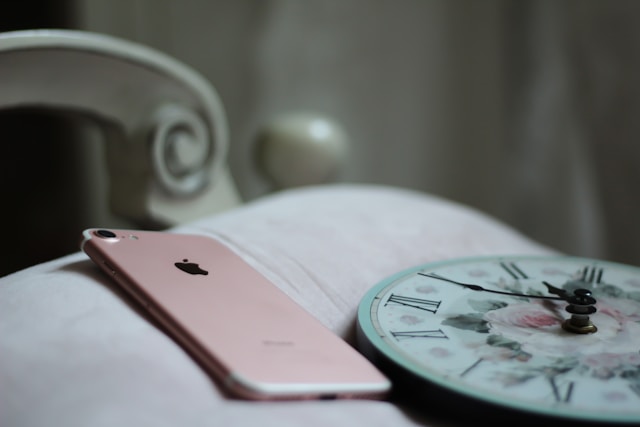For many people, the iPhone alarm is a daily essential. Whether it’s waking up on time for work, remembering an important meeting, or keeping track of study breaks, alarms play a big role in staying organized. But what happens when your iPhone alarm stops working properly? If your iPhone alarm is not going off, too quiet, or simply unreliable, you’re not alone. Many users experience these problems, but the good news is that most iPhone alarm issues can be fixed with a few simple steps.
In this guide, we’ll explore the most common iPhone alarm problems, why they happen, and how to fix them quickly.
Common iPhone Alarm Issues
Before jumping into solutions, let’s look at the most frequent iPhone alarm issues:
-
iPhone alarm not going off at all – The alarm is set, but it doesn’t ring.
-
Alarm volume is too low or muted – The alarm rings so quietly that it’s easy to miss.
-
Alarm vibrates but no sound plays – Often caused by sound settings or tones not working.
-
Alarm not repeating on schedule – A recurring alarm may fail to activate daily.
-
Alarm volume different from ringtone volume – Many users don’t realize alarms are linked to the ringer volume, not media volume.
Solutions to Fix iPhone Alarm Problems
1. Check Alarm Settings
The simplest issues are often caused by incorrect alarm settings. Double-check the following:
-
Make sure AM and PM are set correctly.
-
Verify repeat options if you want the alarm daily.
-
Confirm that you’ve chosen a sound instead of “None.”
To do this, open the Clock app > Alarm > Edit > Sound and select a ringtone.
2. Adjust Volume and Sound
Many users confuse media volume (for music and videos) with ringer volume, which controls alarms.
-
Go to Settings > Sounds & Haptics and adjust the Ringer and Alerts slider.
-
Disable Change with Buttons if you don’t want side buttons lowering your alarm volume.
-
Choose a loud or distinct alarm tone so it’s harder to ignore.
3. Disable Silent Mode and Do Not Disturb
Silent Mode or Do Not Disturb may interfere with alarm sounds.
-
Make sure the physical Mute switch on the side of your iPhone is turned off.
-
Check Settings > Focus > Do Not Disturb and ensure alarms are allowed.
Unlike notifications, alarms should bypass Do Not Disturb, but sometimes Focus mode settings can cause conflicts.
4. Update iOS
Apple occasionally fixes bugs that affect alarms in iOS updates. If your iPhone alarm not working is a software glitch, updating could solve it.
-
Go to Settings > General > Software Update and install the latest version.
5. Delete and Recreate Alarms
Sometimes an alarm becomes “glitchy” and doesn’t trigger properly.
-
Open the Clock app and delete the alarm.
-
Recreate it from scratch to reset its settings.
6. Restart Your iPhone
A quick restart can clear temporary bugs affecting the alarm function.
-
Hold down the power button and slide to power off.
-
Wait a few seconds, then restart the device.
7. Check Bedtime or Sleep Schedule Mode
Apple’s Sleep/Wake Up (Bedtime) feature in the Health app can sometimes conflict with regular alarms.
-
Go to Clock > Alarm > Sleep/Wake Up and review settings.
-
If you don’t use Sleep Schedule, disable it to avoid conflicts with your manual alarms.
Preventative Tips to Avoid iPhone Alarm Issues
Once you’ve fixed your alarm, follow these best practices to keep it reliable:
-
Test alarms after setting them – especially before important events.
-
Keep iOS updated to prevent bugs from interfering.
-
Avoid relying only on third-party alarm apps – stick with the built-in Clock app for reliability.
-
Charge your phone overnight so it doesn’t shut down before the alarm.
-
Pick distinct alarm sounds that are harder to sleep through.
When to Seek Further Help
If you’ve tried all of the above and your iPhone alarm is still not working, you may need to take stronger steps:
-
Reset all settings under Settings > General > Transfer or Reset iPhone > Reset > Reset All Settings. (This won’t delete your data but will reset preferences.)
-
If the problem persists, contact Apple Support or visit an Apple Store, as there could be a hardware or deeper software issue.
Conclusion
Your iPhone alarm is supposed to be reliable, but it can run into problems like low volume, skipped alarms, or glitches. Thankfully, most iPhone alarm issues are easy to fix once you check your settings, adjust volume, and keep your iOS up to date. By following these simple troubleshooting steps and preventative tips, you can make sure your alarm works when you need it most.









